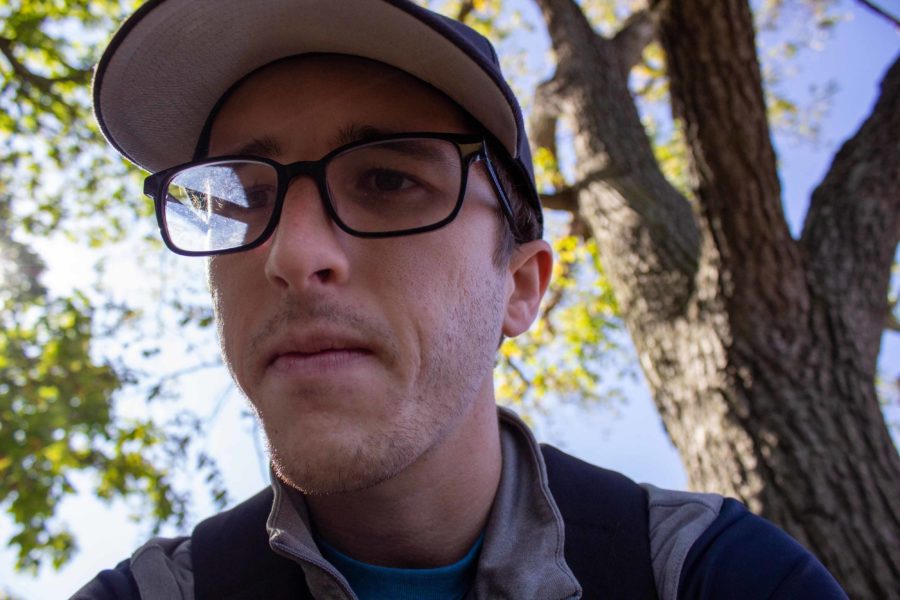
Two years ago, soon after graduation, Tyler Fenwick landed a job as a staff writer at the Indianapolis Recorder, one of the top African American newspapers in the nation and the longest-standing African American-owned newspaper in Indianapolis. Since his hiring, he has covered a pandemic, protests, elections, and other hugely important topics. We spoke to Fenwick, B.A.J. ’18, about his experiences at the Recorder so far:
1. What are your overall impressions of your job? What are some of the topics you enjoy covering most?
“My job is challenging but rewarding. The most consistent challenge is that we are considered fully-staffed in the newsroom with two reporters and an editor, and there was a span of a couple months in 2019 when I was the only reporter. The Recorder is a weekly, but it constantly feels like there are stories we miss because we simply don’t have the time or people.
I enjoyed covering the most recent mayoral election because the Recorder was involved with town halls and a debate. I’ve also enjoyed pushing the mayor, police chief, and city-county councilors on issues related to racial justice and police reform.”
2. What has it been like covering the recent protests in Indianapolis against racial injustice and police brutality? What has covering these events taught you about reporting?
“Covering protests was a tall order for our small staff, especially in May and June 2020, because we would work normal hours during the day and then take turns going downtown in the evening. Talking to protesters gave me a much better sense of what I’m supposed to be doing at an African American newspaper, though. Through covering those protests I learned sometimes our most basic responsibility as journalists — showing up — can also be the most significant. I think we gained respect for being a constant presence. When it comes to reporting in chaotic environments, I learned to trust my eyes and ears. People told me things like the National Guard was ordered to shoot to kill, so I learned it can be best to just block out the noise and rely on your instinct.”
3. You’ve written a lot about how COVID-19 has affected your readers — how has that reporting affected you? How have you adjusted to being a reporter during a pandemic?
“I’ve been spared the most serious effects of the pandemic, but we did take a pay cut in the spring and haven’t gotten it back. It was difficult in the beginning to keep up with everything that was happening, but it was also a reminder that our job as a smaller weekly doesn’t necessarily involve reporting every little change. I focused more on big-picture stories such as how virtual school has affected families and how the homeless are doing.
I know COVID-19 has made my job more difficult, but it’s hard to put it into exact words. I get this recurring feeling that I’m not qualified to document such an enormous time in history (same goes for the racial justice movement) and then either convincing myself otherwise or just continuing to chug along because someone has to do it.”
4. What advice do you have for journalism students?
“My advice to journalism students is to get uncomfortable. I was a sports journalism student but have spent the last two years covering education, city government, a pandemic, protests, and now only occasionally sports. I knew later in college that I was also interested in the type of journalism I’m doing now, especially at a paper like the Recorder, and I’m happy I took the leap when I did, rather than waiting and hoping I could pull it off later. For the record, my sports journalism internships prepared me for this more than I realized (especially when it comes to deadlines), so I’m definitely not saying I abandoned my schooling. I don’t think that’s even possible.”
5. What are some skills and concepts you learned at IUPUI that have helped you with your career?
“My time at IUPUI taught me to pay close attention to details (thank you, Professor Malcolm Moran). How many masks was that nurse wearing? What direction were protesters facing when police threw tear gas canisters? Is it the Marion County Public Health Department or Marion County Department of Public Health? I still mess up, of course, but I know I’m better at my job because I was taught to pay close attention.”

